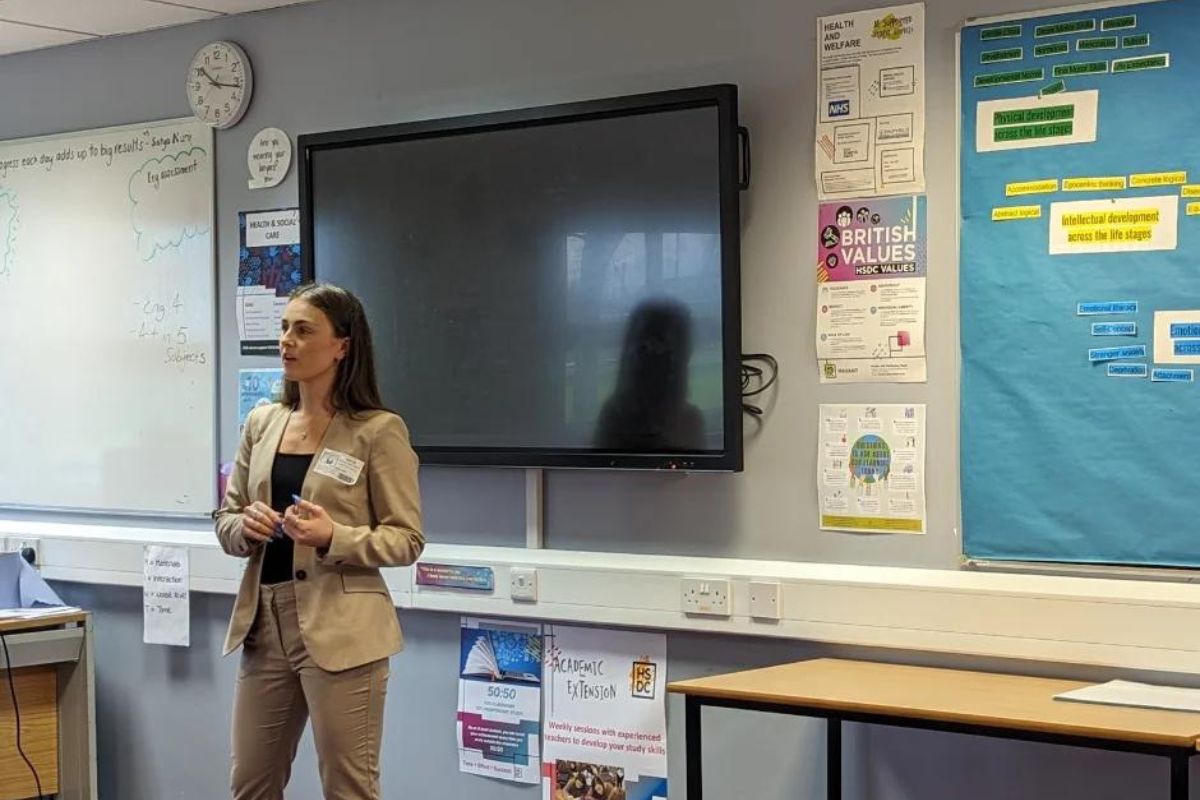Get laptops and tablets for pupils and students who cannot access face-to-face education due to coronavirus (COVID-19)

How schools, 16 to 19 academies, colleges, and other further education institutions, can access digital devices for pupils and students learning remotely.
The Department for Education (DfE) is providing laptops and tablets to trusts, local authorities, schools, 16 to 19 academies, colleges and other further education (FE) institutions to help pupils, students and families access remote education during coronavirus (COVID-19). We’re also helping disadvantaged children and young people who need an internet connection to get internet access.
Parents, carers, pupils and students cannot apply for digital devices or internet access through this scheme themselves. They should contact their school, college or other FE institution to discuss requirements for accessing remote education.
Separate guidance on owning and managing these devices is available at get help with DfE laptops, tablets and 4G wireless routers provided during coronavirus (COVID-19).
More laptops and tablets available in 2021
DfE is increasing the help available through its get help with technology programme.
This includes:
- providing hundreds of thousands more laptops and tablets – reaching a total of more than 1.3 million
- offering more support to disadvantaged students in further education
DfE will contact trusts, schools, local authorities, colleges, and other FE institutions, when they’re able to order these devices during the spring term 2021.
Who can get laptops and tablets
Schools, 16 to 19 academies, colleges and other FE institutions can order an allocation of devices for:
- disadvantaged children and young people in years 3 to 13 who do not have access to a device and whose face-to-face education has been disrupted
- disadvantaged children and young people in years 3 to 13 and those in 16 to 19 education who have been advised to shield because they (or someone they live with) are clinically extremely vulnerable
- disadvantaged children and young people in years 3 to 13 and those in 16 to 19 education attending a hospital school
This offer applies to maintained schools, pupil referral units, academies and hospital schools, as well as sixth-form colleges, FE colleges and other FE institutions.
Disadvantaged children and young people with special educational needs and disabilities (SEND) are included within this offer. However, if specialist support and equipment is required help may be available through the Family Fund.
Colleges and other FE institutions can order an allocation of devices for:
- 16 to 19 year olds who receive free meals in further education
- students over the age of 19 with an education, health and care plan (EHCP) who also receive free meals
Eligible colleges and other FE institutions include:
- 16 to 19 academy converters
- 16 to 19 free schools
- sixth form colleges
- general FE colleges
- designated institutions that provide full time education to students aged 16 to 19
- local authorities delivering ESFA funded 16 to 19 education and training
- universities delivering ESFA funded 16 to 19 education and training
- independent training providers
- special post-16 providers
When laptops and tablets can be ordered
Academy trusts, local authorities, schools, 16 to 19 academies, colleges and other FE institutions, can order laptops and tablets through our online service as soon as they’re invited to. Anyone nominated to place orders will receive an email explaining what to do.
When laptops and tablets cannot be ordered
It is not possible to order devices for:
- apprentices
- adult learners (other than those aged 19 and over with an EHCP and in receipt of free meals)
How to order devices
Ordering for pupils in years 3 to 13
Academy trusts, local authorities, schools and 16 to 19 academies in England can use the get help with technology service to submit details of who will place orders. Local authorities and academy trusts have the option to manage the ordering process themselves or to delegate this to the education settings they are responsible for.
Ordering for students in further education
Eligible FE colleges and other FE institutions can use the get help with technology service to nominate who will place orders. Those nominated will receive an email once they’re able to order devices.
How device allocations have been decided
Schools, 16 to 19 academies, colleges and other FE institutions will receive an allocation of devices to be used to support disadvantaged children and young people who are otherwise unable to access remote education.
Examples of disadvantaged children and young people who may need support include those:
- with no digital devices in their household
- whose only available device is a smartphone
- with a single device in their household that’s being shared with more than one other family member
The number of devices available to order through the get help with technology service reflects the number of laptops and tablets we estimate are needed by each school, college or other FE institution.
For schools, this calculation is based on:
- the number of children in years 3 to 13
- free school meals data
- an estimate of the number of devices a school or college already has
For FE colleges and other FE institutions, this calculation is based on:
- free meals data
- an estimate of the number of devices a further education provider has
This allocation can be used as part of preparing to deliver remote education. However, the exact number and type of devices available will be confirmed at the time of ordering based on stock availability.
Information on device allocations and how to query them is available.
More information is available on:
- how to order laptops and tablets during coronavirus (COVID-19)
- device types and technical specifications
- device distribution and ownership
Published 7 August 2020
Last updated 4 February 2021 + show all updates
-
Updated to include information for further education (FE) institutions.
-
Page updated to reflect school closures.
-
Updated to include information on the increased help available from January 2021.
-
Updated to include further information on device allocation, when and when not to order devices and help on ordering.
-
Clarification of eligibility criteria.
-
First published.












Responses